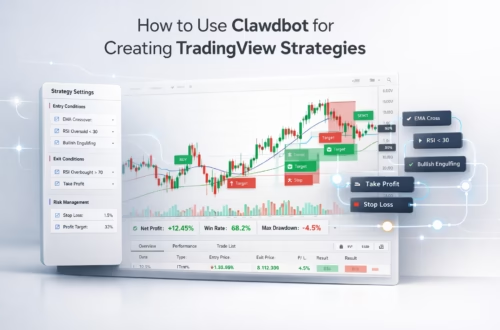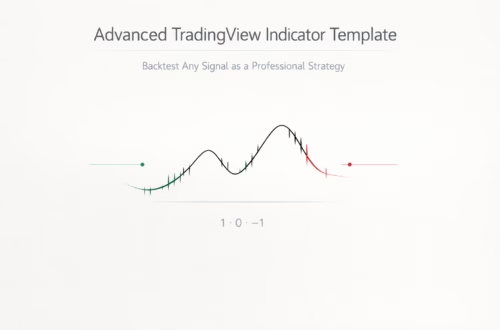In the realm of trading, choosing the right platform can significantly affect your trading success. Apex Trader Funding offers two prominent account plans: Rithmic and Tradovate. Each has its unique features and benefits, which can cater to different trading styles and preferences. This guide aims to provide a thorough comparison between these two options, helping you make an informed decision.
Understanding Apex Trader Funding
Apex Trader Funding is a proprietary trading firm that provides capital to traders, allowing them to trade various instruments without risking their own money. The firm offers two main account plans, Rithmic and Tradovate, each with distinct characteristics. Understanding these differences is crucial for traders seeking to optimise their trading experience.
1. Computer Compatibility
When selecting an account plan, computer compatibility is a fundamental factor. The Rithmic account plan is designed to work on Windows PCs but poses challenges for Mac users. However, there are alternative methods available for Mac users to access Rithmic. In contrast, the Tradovate account is compatible with both Windows PCs and Macs, providing greater flexibility for traders who use different operating systems.
2. Data Offered
Data is another critical element in choosing between Rithmic and Tradovate. Rithmic accounts use Rithmic data, while Tradovate accounts rely on CQG data. If you are currently associated with a prop firm that uses Rithmic data, you may encounter difficulties trading simultaneously on an Apex Rithmic account. In such cases, opting for a Tradovate account may be more beneficial as it allows for smoother integration with other trading systems.
3. Evaluation and Funded Account Fees
The costs associated with evaluation and funded accounts can influence your decision significantly. Rithmic’s evaluation account subscriptions are generally $20 cheaper than those of Tradovate. Additionally, the reset fees for Rithmic accounts are also lower. Apex Trader Funding frequently offers promotional discounts, which can further affect the pricing structure. For example, at a 50% discount, Rithmic could be $10 cheaper than Tradovate.
4. Commission Fees
Commission fees are essential to consider as they can impact your overall profitability. Rithmic and Tradovate both charge different commission rates. Generally, Tradovate tends to have lower commission fees across various instruments, which can lead to significant savings for active traders.
5. Instruments and Markets Available
Another significant difference lies in the instruments available for trading. Both Rithmic and Tradovate offer a variety of instruments, including equity futures, interest rate futures, agricultural futures, and energy futures. However, Tradovate provides additional instruments that may not be available on the Rithmic platform, making it a more versatile choice for traders looking to diversify their portfolios.
6. Compatible Platforms
Compatibility with trading platforms is crucial for traders who utilise various tools and systems. The Rithmic account is compatible with a wider range of trading platforms, providing access to 14 different options. In contrast, Tradovate is compatible with only four platforms. This aspect may sway traders who rely heavily on specific trading software or tools.
7. Platform Limitations
Understanding the limitations of each platform is vital for traders who engage in high-frequency trading. Tradovate imposes a limit of 5,000 trader actions within a rolling 60-minute period. This restriction can be a significant hurdle for traders managing multiple accounts or executing numerous trades simultaneously. On the other hand, Rithmic does not impose such limits, allowing for greater flexibility and efficiency during trading sessions.
8. Account Setup Process
The setup process for trading accounts can vary significantly between Rithmic and Tradovate. For Rithmic, traders must download both the Rithmic and NinjaTrader platforms, which can complicate the initial setup. In contrast, Tradovate is web-based, offering a more straightforward setup process that does not require additional downloads unless NinjaTrader is chosen as the trading platform.
9. Order Flow Features
Order flow capabilities can enhance trading strategies by providing insights into market movements. In the Rithmic plan, order flow is not included and must be purchased separately from NinjaTrader. However, the Tradovate plan includes order flow as a complimentary add-on, which can be a deciding factor for traders who rely heavily on this feature for their trading strategies.
Summary of Key Differences
To summarise, here are the main points of comparison between Rithmic and Tradovate:
- Computer Compatibility: Rithmic (PC only) vs. Tradovate (PC and Mac).
- Data: Rithmic data vs. CQG data (Tradovate).
- Evaluation Fees: Rithmic generally cheaper by $20.
- Commission Fees: Tradovate typically lower than Rithmic.
- Instruments: Tradovate offers more diverse instruments.
- Compatible Platforms: Rithmic (14 platforms) vs. Tradovate (4 platforms).
- Platform Limitations: Rithmic has no trader action limit; Tradovate has a 5,000 action limit.
- Account Setup: Rithmic requires downloads; Tradovate is web-based.
- Order Flow: Not included in Rithmic; included in Tradovate.
Choosing the Right Plan for You
Ultimately, the decision between Rithmic and Tradovate should be based on your specific trading needs and preferences. Consider your trading style, the instruments you wish to trade, and the platforms you prefer. Each account plan offers unique benefits, and understanding these differences will help you select the one that aligns best with your trading goals.
Next Steps
In the upcoming articles, we will delve deeper into specific features of each account plan, including detailed guides on setting up your account and optimising your trading strategies. Stay tuned for more insights and tips on how to navigate the world of trading effectively.
Conclusion
Choosing between Rithmic and Tradovate can be a challenging decision for traders. By understanding the key differences between these two account plans, you can make a more informed choice that suits your trading style and goals. Remember to consider all factors, from computer compatibility to commission fees, to ensure that you select the best option for your trading journey.




Central bank digital currency news
Hello, always i used to check weblog posts here in the early hours in the morning, because i like to learn more and more.